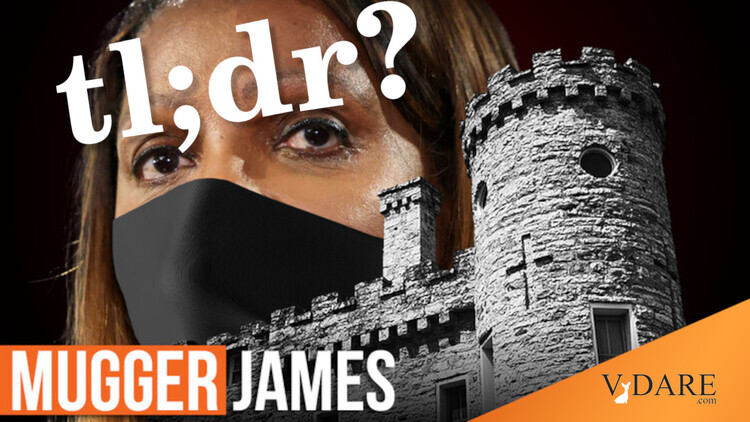I was trying to think of something new to say about Shakespeare on the 400th anniversary of his death, which isn’t that easy to do.
In general, I’d suggest that Shakespeare has enjoyed a really, really good 400 years of being dead, at least as measured in audience applause, a metric that Shakespeare himself probably would have valued. Granted, as a businessman who worked very hard (presumably) for the moderate amount of wealth he piled up, I would think he’d be a little peeved that his daughters didn’t get to profit from all the advances in intellectual property law since 1709. But, on the whole, it’s been a pretty decent 400 years for Shakespeare, what with him being dead and all.
But what about the future?
On the one hand, Shakespeare’s reputation over the course of my lifetime is perhaps the most stable in all of literature, other than, maybe, Homer’s. Consider in contrast even Dante, whose repute may have peaked about a century ago due to his appeal to WASPs such as T.S. Eliot. Granted, people don’t put down Dante now, but English-speakers don’t rhapsodize over him as much as they did in the first four decades of the 20th Century, the E.M. Forster era, when rich Americans and Englishmen tried to spend time in Dante’s hometown of Florence.
Even today, however, Shakespeare continues to electrify the Theater Kids. And in a culture war, that’s who you want — the good-looking and limelight-seeking girls and boys — in your foxhole.
On the other hand, the humorless, unattractive Social Justice Warriors may eventually turn upon Shakespeare as the ultimate stale pale male.
Thus, from the Guardian:
Only 17% of speeches in Shakespeare’s plays are by womenJulius Caesar, which is written in simpler, more Latin-like English, than Shakespeare’s other plays, is the best intro to a Shakespeare play for boys. Henry IV Part I is hugely entertaining for boys, with Falstaff for comedy and a great sympathetic bad guy in Hotspur.Shakespeare may have been widely championed as a visionary, but this description can’t be applied to his record on gender equality. On average men are given 81% of speeches, while 17% go to women and the rest are made up of unknowns or mixed groups, according to Open Source Shakespeare. Women tend to come off worst in his tragedies: Timon of Athens features just nine speeches by women, compared with 725 by men. And yet the population of Shakespeare’s England was roughly 53.5% male and 46.5% female.
The problem with the tradition of using Romeo and Juliet as an introduction to Shakespeare for girls is that it’s an extremely show-offy play by a young Shakespeare feeling his verbal oats (as depicted in Shakespeare in Love), and the complexity of the language is likely to defeat most young people. Fortunately, there are countless adaptations, with West Side Story being only the most obvious.
Heather Froehlich asks the burning question:
DOES SHAKESPEARE PASS THE BECHDEL TEST?But, my impression is that when girls get together they actually do talk about boys a lot …The Bechdel Test is a measure of how male and female characters are portrayed in cinema and other media. A piece passes the Bechdel test if it:
a) has at least two women in it b) who talk to each other about something besides a man.
That’s it. Pretty simple, right? Not a lot of contemporary media passes the Bechdel test, rather alarmingly. While I was working out proportions of male and female characters in Shakespeare, I got a number of questions about whether or not Shakespeare will pass. I went looking to see if anyone else had approached this question before. Someone has, but at the time of writing this, their website is down for maintenance.
I have already shown that all of Shakespeare’s plays have 2 or more female characters. But what about “talking to each other about something other than a man”? …
By and large, Shakespeare does not pass the Bechdel test: but two plays do – and it’s not the plays I ever would have expected. …
Henry V does pass the Bechdel Test, due to this discussion (in French) between Katherine and Alice from Act 3 Scene 4. …
Richard 2 passes because the Queen and her ladies “are carefully not talking about Richard” as @angevin2 kindly points out; they are instead talking about garden sports in Act 3 Scene 4.
Here’s a question for the Shakespeare experts: are there any gay characters in Shakespeare’s works? It’s a pretty interesting question since it’s not clear how long the 20th century gay male mode has been around in the past, or how long it will last into the future. Is it due to nature or nurture?
Shakespeare himself … I dunno. He fathered three children in Stratford as a very young man. But some of his early sonnets after he then arrived in London sound pretty gay. But then he became a patriarch of the theater, where, judging from today’s theater, he presumably would have known numerous gays. But his plays don’t seem particularly gay by stage standards. Eventually, around age 48 he retired back to his small town of Stratford, where his will granted his widow his second-best bed.
There aren’t a lot of obviously gay characters in Shakespeare’s plays.
One possibile gay character is an effeminate aristocrat whom the virile Hotspur denounces at length in Henry IV Part I. On the other hand, maybe Shakespeare was just making fun of the unnamed offstage character’s snobbishness? Similarly, it’s hard to tell from watching reruns of the Jack Benny Show from the 1950s whether Benny is making fun of his character’s effeminacy or snobbishness.












